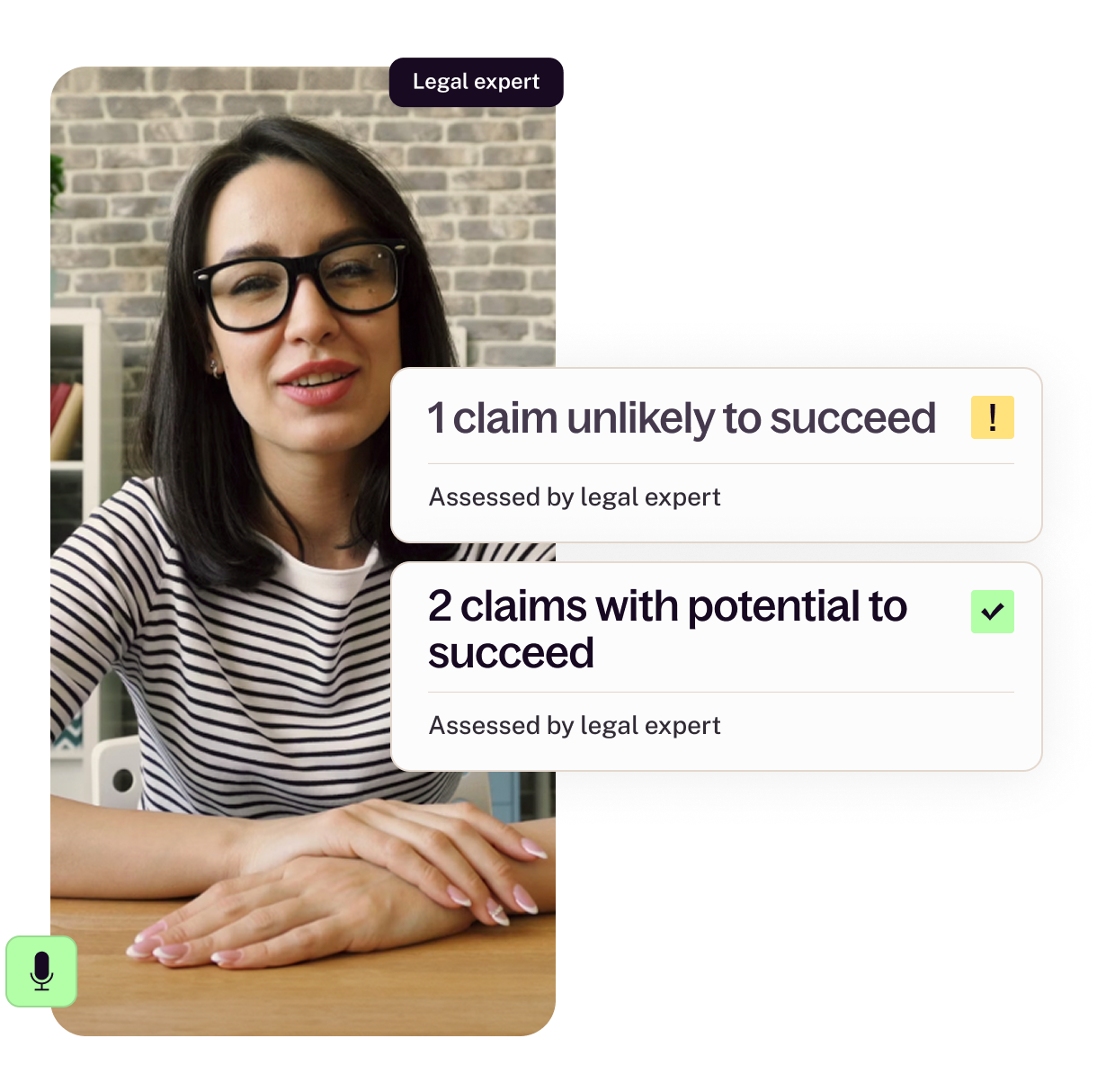"Valla isn’t just a legal resource, it’s a lifeline. It gave me the tools, the knowledge, and the resilience to fight for what was right."
- Jamie Blackwood
"Legal fees can be overwhelming, but this was affordable and empowering. Valla’s coaching was a fraction of what I would have paid a solicitor. More than that, they genuinely cared."
- Belinda Yates
"Their support was not only professional but also deeply human, which made a real difference during such a stressful and emotional time. I honestly don't know how I would have managed without them. "
- Mandy Maderia
What it means to "have a case" and why it matters
What does it mean to “have a case” at work?
If you’ve experienced something unfair at work like discrimination, unfair dismissal, bullying, or a breach of your contract, you may be able to make a legal claim. But not every bad experience is something you can win compensation for. That’s where understanding the legal merits of your case becomes so important.
Why knowing your legal position matters
UK employment law can be complicated. To succeed at an employment tribunal, your case needs to meet certain legal criteria and be backed by evidence. Many people lose cases because they don’t fully understand what’s needed or how strong their claim is before starting.
That’s why Valla offers a Case Assessment, a one-off service where a UK legal expert reviews your documents, talks you through your rights, and gives you a written summary of how strong your case is and what it could be worth.
Whether you’re still deciding whether to go to tribunal or just want to know where you stand, this is the best way to move forward with clarity and confidence.
Frequently asked questions
What does it mean to "have a case" in employment law?
It means your situation could meet the legal criteria for making a claim. For example, unfair dismissal, discrimination, harassment, unpaid wages, or a breach of contract. Valla helps you understand which laws may apply.
How do I know if I can take my employer to a tribunal?
Do I need to raise a grievance before making a claim?
Yes, in most cases. Employment tribunals expect you to try resolving the issue internally first. A grievance letter is a crucial step in protecting your legal position.
What documents should I gather to assess my case?
Common documents include your grievance letter, disciplinary letters, employment contract, emails, and a timeline of events. Valla lets you upload all of these securely.
Is it worth making a claim if I’ve already left the job?
Yes. Many tribunal claims are brought after someone has resigned or been dismissed. What matters is whether your employment rights were breached, not whether you're still employed.
What if my case isn’t strong enough?
Not every situation meets the legal threshold for a claim. But even if you don’t have a strong case, understanding your position can help you make informed decisions and avoid wasting time or money.
Will I need a solicitor to go to tribunal?
No. You can represent yourself, and Valla is designed to help people do exactly that. Our tools and legal coaches guide you through the process without high solicitor fees.
What kind of compensation could I receive?
That depends on your specific claim. Our Merits Assessment includes a summary of potential outcomes, including what your case might be worth in terms of compensation or remedies.
Is Valla a law firm?
No, Valla is a self-representation platform. We offer unreserved legal services delivered by experienced legal professionals, including former solicitors and tribunal experts. You stay in control, with clear support at every step.
Not sure if you have a case? Let's find out together
If something’s gone wrong at work, you deserve to know where you stand. Our Case Assessment gives you expert insight into your case without the high cost of a traditional law firm.
Book your Case Assessment now for just £149
Includes document review, 1:1 consultation, and written case summary
- Payment plans available with Klarna
- Built for UK employment law
- No pressure to continue if you don’t want to


